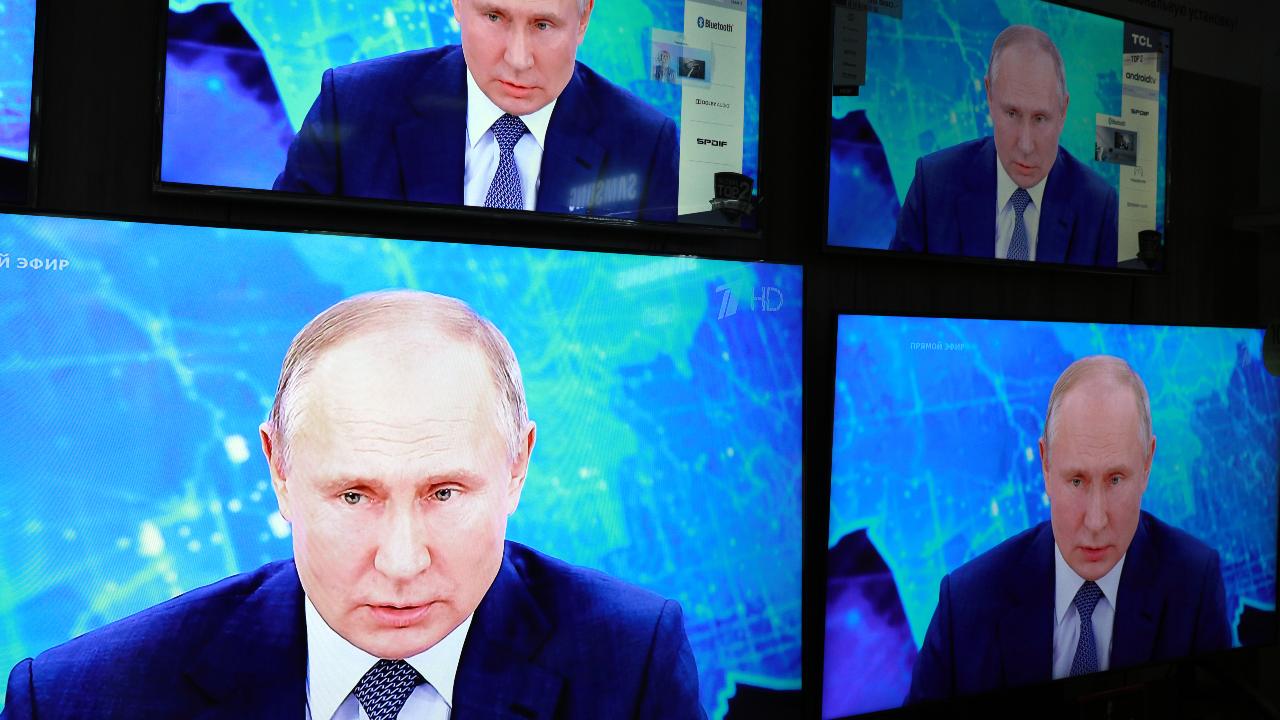Vladimir Putin will attack Ukraine in the east. Or from the south. Or with a feint from Transnistria in the west. Or from Belarus. He will announce peace and then attack. Or vice versa. So: war is coming. Or maybe not.
The perplexity of even seasoned Western analysts reflects the secrecy of Russia’s decision-making. The crumbs of intelligence are inconclusive. Is the Kremlin leaking material designed to scare the West into making concessions? Is the Russian leader waiting: for frozen ground that will enable his tanks to maneuver, or for Western nerves to fray? We don’t know. My guess is that the game has many rounds to go. The next tactic may involve cutting gas supplies to Europe in the hope that cold, panicky rich countries start rebelling against American threats of sanctions.
But the speculation misses the point. We have two clear guides to Putin’s thinking.
One is published in his own words on his own website. It is his long essay “On the Historical Unity of Russians and Ukrainians” published in July. Read carefully, it is a blueprint for war. It starts by invoking St Vladimir, Prince of Novgorod, and Grand Prince of Kyiv, who in 988 AD was the first Slavic ruler to accept Christianity. Coupled with Putin’s previous characterization of Crimea, the presumed location of that event, as Russia’s “Temple Mount”, it implies that Vladimir 2.0 has inherited Vladimir 1.0’s mantle as the divinely mandated protector of all Russian-speakers.
According to the essay, they are in dire need of his protection. A “despicable” feature of Ukraine under its Western tutelage, he argues, is that Russians are being forced to deny their roots, and suffering “forced assimilation” — to an extent comparable with the use of ‘weapons of mass destruction” against Russia. After all, the numbers of “Russian-speakers” (his term) will decrease by “hundreds of thousands or even millions”.
In other words, Russia is justified in intervening in Ukraine to prevent genocide.
The other guide is Russia’s actions. Two cyber-attacks against Ukraine in recent days are emblematic of a favorite Kremlin: sowing fear, uncertainty, and doubt. One was a crude information attack against dozens of official websites. This was purportedly by Polish nationalists — though even the most knuckle-dragging moron on the Polish far-right would write more grammatically than the language used by the attackers. That was followed by a more sinister attack, masquerading as ransomware, which destroys data on the computers it affects. Data flowing across networks is the lifeblood of a modern society. Russia is trying to inflict a heart attack on Ukraine. Outsiders are worried too. There are similarities with Notpetya, Russian malware that crippled hundreds of Ukrainian businesses and organizations in 2017. It then spread worldwide and became the costliest cyber-attack in history, doing $10bn in damage.
It’s not just Ukraine. Sweden is under attack too. Unidentified drones have been spotted flying over the royal palace in Stockholm and over nuclear power facilities. Major General Lena Hallin, head of the country’s military intelligence agency, said last week the country’s security is “far from a normal situation.” By Scandinavian standards of understatement that counts as a deafening cry of alarm.
The right response to all this would be an immediate military exercise in the Baltic Sea region involving large American reinforcements, coupled with a huge effort to bolster Ukraine’s military, economic, and cyber-security. Don’t hold your breath. More likely are calls for dialog, and discussion of concessions that would appease Putin (or give him an “off-ramp”). And that eternal lament that we do not really know what the Russian leader is thinking. But we do.
Europe’s Edge is CEPA’s online journal covering critical topics on the foreign policy docket across Europe and North America. All opinions are those of the author and do not necessarily represent the position or views of the institutions they represent or the Center for European Policy Analysis.





